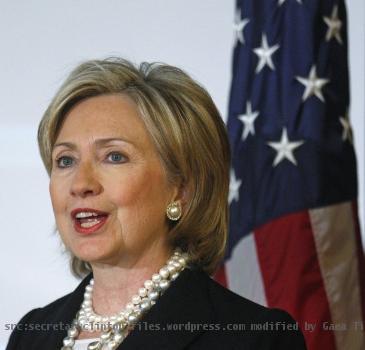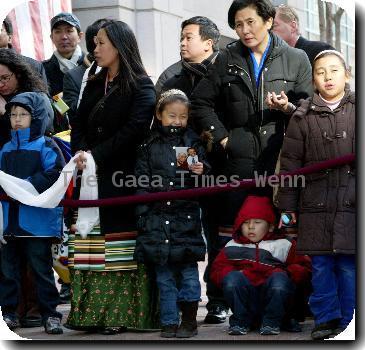US, Japan agree to keep contentious Marine air base in Okinawa amid Korean tension
By Malcolm Foster, APFriday, May 28, 2010
US, Japan agree to keep Marine air base on Okinawa
TOKYO — Washington and Tokyo agreed Friday to keep a contentious U.S. Marine base in Okinawa, with Prime Minister Yukio Hatoyama highlighting the importance of the Japanese-American security alliance amid rising tension on the nearby Korean peninsula.
In a joint statement, the two allies agreed to move the Marine Corps Air Station Futenma to Henoko, in a less crowded, northern part of the island.
The decision is broadly in line with a 2006 deal forged with the previous Tokyo government, but it breaks Hatoyama’s campaign promise and has infuriated Okinawa residents who have complained about pollution, noise and possible danger from the bases across the island.
In a news conference broadcast nationwide, Hatoyama repeatedly apologized for failing to keep his pledge to move the base off the island, which hosts more than half the 47,000 U.S. troops stationed in Japan under a 50-year-old joint security pact.
“I am sincerely sorry for not being able to keep my word, and what is more, having hurt Okinawans in the end,” he said.
Hatoyama said that the government had investigated 40 sites as alternatives for Futenma, including options off the island, but none worked. He said Futenma’s helicopter and air assets were needed for nearby Marine infantry units based on the island in times of emergency — reminding listeners that recent events on the Korean peninsula had made the region “extremely tense.”
“In Asia, there still remain unstable and uncertain factors, including the sinking of a South Korean warship by North Korea,” he said.
“I had to give the Japan-U.S. agreement the priority because maintaining the trust between Japan and the U.S. serves the best deterrence,” Hatoyama added.
In Okinawa, around 1,000 people gathered in front of the city hall in Nago, the nearest city to Henoko, to voice their anger at the agreement, with some holding up banners emblazoned with the Japanese character for “rage.”
The decision also rattled Hatoyama’s Cabinet. He dismissed Gender Equality and Consumer Affairs Minister Mizuho Fukushima, head of the Social Democratic Party, because she refused to accept the agreement.
“I couldn’t betray the Okinawans,” she said. “I cannot be a part of an agreement that imposes a burden on Okinawans.”
Her party, a junior member in the ruling coalition, will hold an executive meeting Sunday to decide whether to stay in the coalition.
Because of the party’s small size, its possible withdrawal from the coalition most likely would not cause Hatoyama’s Democratic Party of Japan-led government to fall. But his poor handling of the Futenma issue could hurt the Democrats’ performance in upper house elections, to be held around July.
Under a 1960 security pact, American armed forces are allowed broad use of Japanese land and facilities. In return, the U.S. is obliged to respond to attacks on Japan and protect the country under its nuclear umbrella.
The U.S. and Japan “recognized that a robust forward presence of U.S. military forces in japan, including in Okinawa, provides the deterrence and capabilities necessary for the defense of Japan and for the maintenance of regional stability,” said the joint statement, which was issued by Secretary of State Hillary Clinton, Secretary of Defense Robert Gates, Japanese Foreign Minister Katsuya Okada and Defense Minister Toshimi Kitazawa.
The Futenma move is part of a broader plan to reorganize American troops in Japan that includes moving 8,000 Marines to the U.S. territory of Guam by 2014. But U.S. officials had said that the other pieces cannot move forward until the Futenma issue was resolved.
The two countries said an environmental impact assessment and construction of the replacement facility should proceed “without significant delay.” The statement called for a logistical study to be completed by the end of August.
The base, whose plans call for a 1,800-meter (5,900-feet) runway built partly on reclaimed land off the coast of Henoko, faces intense opposition from residents and environmentalists.
Hatoyama said Okinawa makes up only 0.6 percent of Japan’s land mass but hosts 75 percent of the U.S. troops in the country.
“I am keenly aware that Okinawans … are angry about the agreement, but I had no choice but to ask them to shoulder a burden,” he said.
The joint statement said the two countries would consider moving military training facilities off of Okinawa, possibly to nearby Tokunoshima, or out of Japan completely. The accord called for more environmental stewardship, through which U.S. bases in Japan might incorporate renewable energy technology.
“The ministers recognized the importance of responding to the concerns of the people of Okinawa that they bear a disproportionate burden related to the presence of U.S. forces, and also recognized that the more equitable distribution of shared alliance responsibilities is essential for sustainable development of the alliance,” they said.
Associated Press writers Tomoko A. Hosaka, Shino Yuasa and Mari Yamaguchi contributed to this report.
Tags: Asia, East Asia, Hillary Clinton, Japan, North America, Tokyo, United States, Yukio Hatoyama

